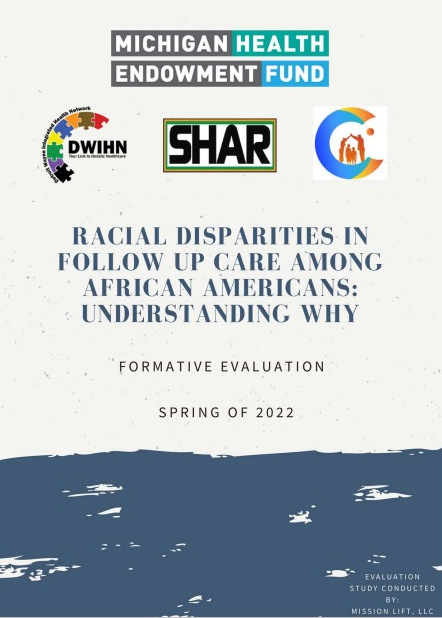Racial Disparities in Behavioral Health Care
In 2021, we awarded grants to community-based organizations in Kalamazoo, Oakland, Saginaw and Wayne counties to conduct a yearlong community engagement, learning, and planning process. The grantee organizations were selected not based on their behavioral health expertise, but rather because of their perceived trust with African American community members, a relationship that we considered vital not only for authentic engagement but also for future implementation. (Read more about those projects in Second Wave Media: Black ER patients are less likely to receive follow-up care, and this project is examining why.)
In 2022, those organizations shared their findings with us and, in some cases, decided to move forward with implementing solutions to improve health equity in their communities. Read their reports below to learn more about what they uncovered.
Reports

